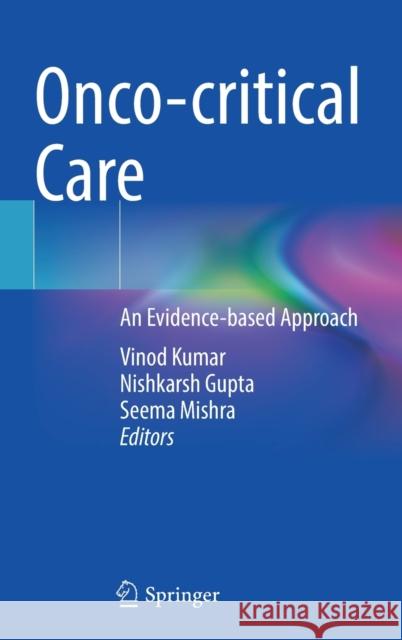Onco-Critical Care: An Evidence-Based Approach » książka
topmenu
Onco-Critical Care: An Evidence-Based Approach
ISBN-13: 9789811699283 / Angielski / Twarda / 2022
Onco-Critical Care: An Evidence-Based Approach
ISBN-13: 9789811699283 / Angielski / Twarda / 2022
cena 564,88
(netto: 537,98 VAT: 5%)
Najniższa cena z 30 dni: 539,74
(netto: 537,98 VAT: 5%)
Najniższa cena z 30 dni: 539,74
Termin realizacji zamówienia:
ok. 16-18 dni roboczych.
ok. 16-18 dni roboczych.
Darmowa dostawa!
This book provides insights into the care of cancer patients in the intensive care unit in a comprehensive manner. It provides an evidence-based approach to practitioners and postgraduate students to understand about the critical care needs of the patients suffering from malignancies. It helps the readers to develop critical thinking and encourage discussion towards improving the overall care of the patients and their families as their optimal management requires expertise in oncology, critical care, and palliative medicine and there is a dearth of books explaining about the special requirements and critical care needs of cancer patients.
Each chapter is prepared by an expert in the field and contains well-prepared illustrations, flowcharts and relevant images. Chapters include latest evidence-based information which is useful for the readers.The book is useful for residents, fellows and trainees in the field of onco-anaesthesia, onco-critical care, onco-surgery, critical care and anaesthesia; practitioners and consultants in anaesthesia and onco-anaesthesia as well as intensivist, critical care experts and postgraduates in nursing.











